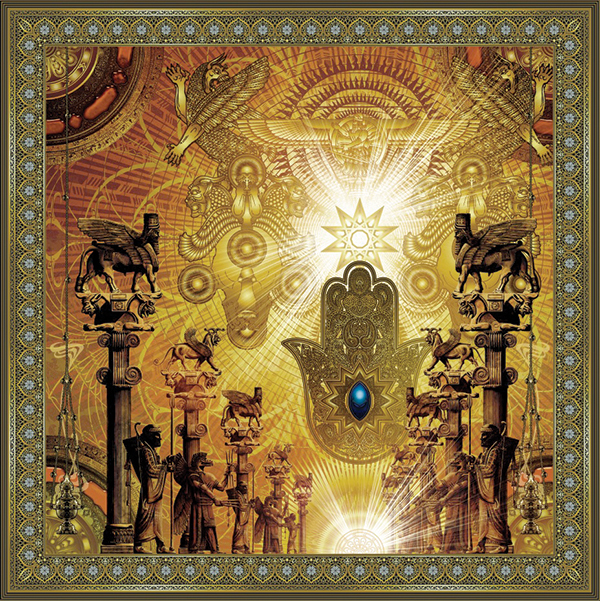 When you look at the photo of Melechesh’s members as they sport sunglasses and leather jackets, you imagine massive stages in Europe filled with screaming fans bobbing their head to music that carries in its folds hundreds of years of language, disappearing cultures, and massive personal and collective pain. Their ascent to fame looks effortless, but these men worked for years to get their music to appear in European charts.
When you look at the photo of Melechesh’s members as they sport sunglasses and leather jackets, you imagine massive stages in Europe filled with screaming fans bobbing their head to music that carries in its folds hundreds of years of language, disappearing cultures, and massive personal and collective pain. Their ascent to fame looks effortless, but these men worked for years to get their music to appear in European charts.
Their home base, Jerusalem, is not necessarily renowned for producing heavy metal. But in 1993, Melechesh (Aramaic for “King” and “Fire”) set to change that. Twenty-two years later, with six internationally released albums and numerous tours around the United States and Europe, Melechesh has managed to accomplish the impossible: place Jerusalem on the world’s heavy-metal map and become the Middle East’s most renowned metal band.
The band is the child of guitarist, vocalist, composer, and manager Murat Cenan (whose stage name is Ashmedi), who in the early nineties recruited drummer Saro Orphali and guitarist Nadim Khoury to create a sub genre of metal they called “Mesopotamian” or “Sumerian” metal. The vision was to mix the raw sounds of black metal with Arabic beats and scales, with lyrics inspired by Mesopotamian mythology. With this goal in mind, they began to rehearse at the Frères’ School in the Old City, playing on the first electric guitars and amplifiers that were imported to Jordanian-ruled Palestine in the 1970s. These instruments powered the sounds of the first rock bands of Jerusalem; now they busted new metallic sounds that had never been heard within the gates of the Old City.
After releasing their first album, provocatively entitled As Jerusalem Burns…Al’ntisar (it’s not metal if it doesn’t have fire in it!), the band moved to Europe in 1998. It was difficult, if not impossible, to grow as a metal band in Jerusalem. Neither friends, nor family, nor society as a whole could really grasp the idea of a metal band in Jerusalem. For personal and professional reasons, they moved to Holland and France and released four more albums – Djinn, Sphynx, Emissaries, and The Epigenesis – which forged a new sub genre in metal.
In February 2015, and after many line-up changes, they released their latest album titled Enki. Enki in Sumerian mythology is also known as Ea in Mesopotamian mythology, which refers to the Sumerian god of crafts, salt water, and creation. The title, says bandleader Ashmedi, is a way of doing homage to the process of creation. In Sumerian mythology, Enki is both the creator of humanity and of that which inspires the human race to create, planting in them a spark of the divine. In a recent interview with About Entertainment, the front man Ashmedi talked about his obsession with deities, especially Enki, because he is the creator of humanity, and he plays with that in response to people’s obsession with technology and their belief in their own superiority.
Whatever your musical preferences, Enki and Melechesh’s other albums and videos (which you can find on YouTube) deserve a listen, even if only out of pure curiosity!
Enki was released on March 10, 2015, by Nuclear Blast Records.

